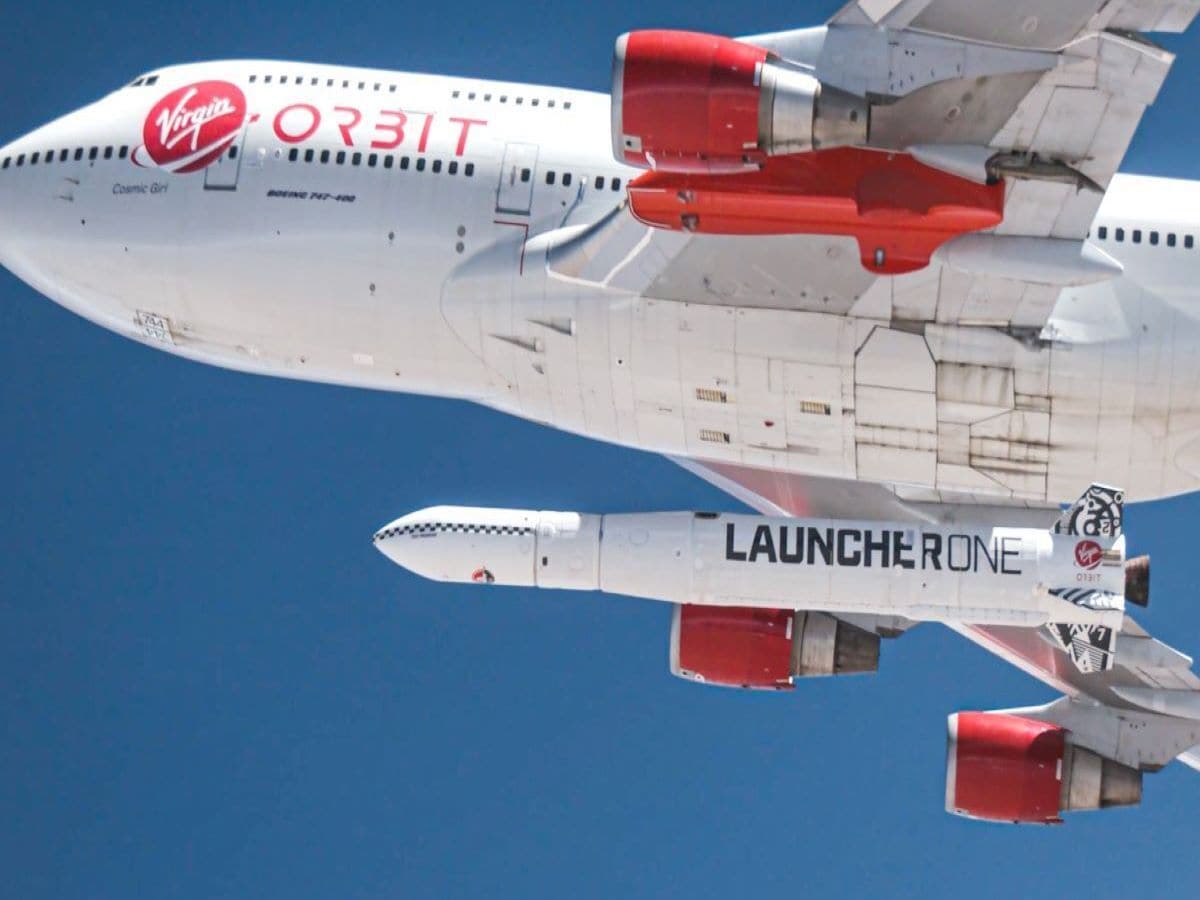Virgin Orbit marked the first UK space launch mission a failure last week, while Virgin Galactic is weighed down by delays, accidents, and lawsuits by investors over safety and performance concerns. Will its plans to launch the “world’s first commercial spaceliner” this year turn that around?
- Virgin Galactic plans to launch its first commercial space tourism flights to space in 2023.
- Investors have filed lawsuits against Virgin Galactic over safety risks and operational concerns.
- Virgin Orbit’s UK launch failure raises questions about the unprofitable company’s future.
Virgin Orbit’s UK launch mission crashes
Virgin Orbit Holdings Inc. [VORB] debuted the UK’s space launch industry last week in a historic first mission involving a repurposed 747 jumbo jet carrier, nicknamed “Cosmic Girl”, that fired a 70-foot-long rocket 40,000 feet over the Atlantic Ocean to transport nine satellites into space more than 500 km above the earth. The launch at Newquay Airport in Cornwall was met with enthusiasm and patriotism, with many gathering to watch the event. There was much speculation and excitement about the UK’s emergence on the space map. The Virgin Orbit share price rallied about 16.27% over the weekend before 9 January in anticipation of a successful first launch.
The mission, however, failed at its final stage due to a malfunction, sending Virgin Orbit’s share price tumbling down a steep 22% to $1.50 in early US trading on 10 January following the failure. In comparison, Virgin Orbit shares traded at $10 this time last year.
Virgin Orbit, spun out of Richard Branson’s Virgin Galactic Holdings Inc. [SPCE], had its IPO in 2021 and has previously had four successful rocket launches from the US. However, the latest failure raises concerns about the unprofitable company’s potential to deliver on more planned launches.
Virgin Galactic held by investor lawsuits, delays, and accidents
Richard Branson plans to make history again later this year - globally this time – with Virgin Galactic planning to launch its first commercial flights to space. Ticket prices start from $450,000 each, and 900 people have already signed up. While the initiative is more than a decade behind schedule, 2023 is still an ambitious target.
The company has been weighed down by mishaps, delays, accidents, and lawsuits in the US over the safety and effectiveness of its operations. The latest legal action comes from investors, using internal corporate documents to back their claims that defects in the vehicles were not appropriately disclosed, and that the Eve and Unity shuttles were prototypes and not made for regular space travel.
Mark Kusnier and other investors filed a complaint in December 2021, stating, “Unity and Eve were so rickety that every flight could be their last.” The complaint also detailed Unity’s malfunctioning during a test flight in February 2019 and that the July 2021 space flight strayed off course outside its glide zone, risking the astronauts’ lives. Virgin Galactic had described the same flight as “perfect.”. A US district-court judge discovered in November that the company made some “materially misleading” statements regarding the two abovementioned flights, according to a report by The Guardian.
Branson had initially planned to launch 50,000 astronauts into space by 2019. However, one pilot was killed and another injured when the company’s first SpaceShipTwo shuttle, VSS Enterprise, crashed in 2014.
Funds in focus: Procure Space ETF, SPDR S&P Aerospace & Defense ETF
The Procure Space ETF [UFO] offers exposure to companies in space-related industries. The fund was up 6.38% in the last month, but down 16.65% year-over-year. Virgin Galactic is among its top ten holdings, with a 4.33% weighting.
The SPDR S&P Aerospace & Defense ETF [XAR] also counts Virgin Galactic amongst its top ten holdings, with a 4.17% weighting. The fund was down 3.61% year-over-year.
Virgin Galactic’s share price has tumbled from its peak of more than $55 to currently around $5. It is down 44.61% year-over-year.
Virgin Orbit’s share price is down 25.23% in the last five days, and down 81.49% year-over-year.
Continue reading for FREE
- Includes free newsletter updates, unsubscribe anytime. Privacy policy





